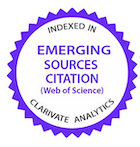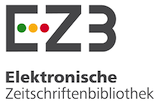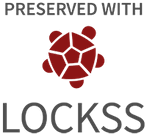Comparação das taxas de concepção e custos financeiros em protocolos de IATF para novilhas nelore
DOI:
https://doi.org/10.1590/1809-6891v26e-79856EResumo
O presente estudo teve como objetivo comparar a taxa de concepção e os custos financeiros de diferentes protocolos de inseminação artificial em tempo fixo (IATF) em novilhas. Foram utilizadas 612 novilhas Nelore, com 16 meses de idade, oriundas do município de Mojuí dos Campos, Pará, Brasil. As novilhas foram divididas em três grupos de 204 animais distintos, quais sejam: Grupo I (controle), Grupo II (Hormônio liberador de gonadotrofina - GnRH) e Grupo III (gonadotrofina coriônica humana - hCG). Foi avaliada a taxa de concepção para comparar os resultados dos grupos II e III e realizada análise econômica para comparar os custos dos grupos II e III. Os dados foram analisados por meio do teste não paramétrico de Kruskal-Wallis e a comparação entre os grupos utilizou o teste de Wilcoxon. Os resultados reportaram diferença (p<0,05) entre os grupos II e III, quando comparados ao grupo I, quanto à taxa de concepção. Ao comparar os custos financeiros dos grupos II e III, verificou-se uma diferença de R$ 10.046,00 em desfavor do grupo III, visto que o grupo II produziu 5 bezerros a mais que o grupo III. Este estudo demostrou melhores taxas de concepção com a utilização de GnRH ou hCG em protocolos de IATF. Contudo, do ponto de vista financeiro, o uso do GnRH se mostrou mais vantajoso, proporcionando maior retorno ao produtor.
Downloads
Referências
Aragão A, Contini E. Agro in Brazil and in the World: a synthesis of the period from 2000 to 2020. Embrapa SIRE. 2021; 1(1):68. https://www.embrapa.br/busca-de-noticias/-/noticia/62619259/brasil-e-o-quarto-maior-produtor-de-graos-e-o-maior-exportador-de-carne-bovina-do-mundo-diz-estudo
Lima RF, Silva AGdS, Santos GDOFD, Tótaro PISD. Relevant aspects of fixed-time artificial insemination (TAI) technique in cattle: A literature review. Altus Science. 2024; 23(23):256-273. https://doi.org/10.5281/zenodo.12963987
Dhangada VR, Gaikwad US, Dhage SA, Deokar DK, Lokhande AT, Kamble DK. Innovative Reproductive Technology in Animal Breeding: A Review. Journal of Advances in Biology & Biotechnology. 2024; 27(6):544-532. https://doi.org/10.9734/jabb/2024/v27i6913
Mercadante VR, Lamb GC. Implementing Fixed-Time Artificial Insemination Programs in Beef Herds. Veterinary Clinics: Food Animal Practice. 2024; 40(1):156-141. https://doi.org/10.1016/j.cvfa.2023.08.008
Reineri PS, Bernhard SDR, Principi SA, Gerlero GD, Aller JF. Effects of two protocols of ovulation synchronization on corpus luteum size and blood flow, progesterone concentration, and pregnancy rate in beef heifers. Animal Reproduction Science. 2023; 251(1):107223. https://doi.org/10.1016/j.anireprosci.2023.107223
Krause, LSdS. Use of gonadotropin-releasing hormone (Gnrh) in bovine reproduction in fixed-time artificial insemination (TAI). Ibero-American Journal of Humanities, Sciences and Education 2024; 10(6):1205-1215. https://doi.org/10.51891/rease.v10i6.14426
Chen F, Hou YA, Zhu X, Mei C, Guo R, Shi Z. Impact of Accessory Corpus Luteum Induced by Gonadotropin-Releasing Hormone or Human Chorionic Gonadotropin on Pregnancy Rates of Dairy Cattle following Embryo Transfer: A META-Analysis. Veterinary Sciences. 2023; 10(5):309. https://doi.org/10.3390/vetsci10050309
Heredia D, Ojeda-Rojas OA, Londoño MC, Lasso SD, Bisinotto RS, Binelli M, Gonella-Diaza AM. A single dose of FSH or hCG during a split-time AI program did not enhance follicular growth or pregnancy per artificial insemination in beef heifers. Journal of Applied Animal Research. 2023; 51(1):440-434. https://doi.org/10.1080/09712119.2023.2218477
Martorano LG, Nechet D, Pereira LC. Climatic typology of the State of Pará: adaptation of the Köppen method. Bulletin of Theoretical Geography, 1993; 23(45-46):307-312.
Nagy SÁ, Kilim O, Csabai I, Gábor G, Solymosi N. Impact evaluation of score classes and annotation regions in deep learning-based dairy cow body condition prediction. Animals 2023; 13(2):194. https://doi.org/10.3390/ani13020194
Fernández J, Bruno-Galarraga MM, Cueto MI, Bonadeo N, Notaro U, Soto AT, Sota RLDL, Salvetti NR, Bianchi CP, Cristina C, Ortega HH, Gibbons AE, Lacau-Mengido IM. Changes on corpus luteum structure and progesterone synthesis pathway after hCG or GnRH treatment during the early luteal phase in sheep. Animal Reproduction Science. 2024; 265(1):107474. https://doi.org/10.1016/j.anireprosci.2024.107474
Bó GA, Huguenine E, Mata JJDL, Núñez-Olivera R, Baruselli PS, Menchaca A. Programs for fixed-time artificial insemination in South American beef cattle. Animal Reproduction (AR). 2018; 15(1):962-952. https://doi.org/10.21451/1984-3143-AR2018-0025
Gregianini HAG, Junior JMC, Neto AP, da Costa Filho LCC, Gregianini JTF, Pinheiro AK, Trenkel CKG. Sexual precocity of Nellore heifers in a herd under selection in the State of Acre. Research, Society and Development, 2021; 10(4):e16310413945-e16310413945. https://doi.org/10.33448/rsd-v10i4.13945
Gottschall CS, Silva LR. Conception rate of beef heifers submitted to FTAI with a protocol based on estradiol benzoate or modified Ovsynch. PUBVET., 2018; 12(9):1-6. https://www.researchgate.net/publication/327787831_Taxa_de_prenhez_de_novilhas_de_corte_submetidas_a_IATF_com_protocolo_a_base_de_BE_ou_Ovsynch_modificado
Schmitz W, Kramer M, Erhardt G, Gauly M, Driancourt MA, Holtz W. Pregnancy rate after fixed-time artificial insemination of suckled beef cows subjected to a cosynch protocol with either buserelin or hCG as ovulation inducing agent. Livestock Science. 2017; 206(1):147-141. https://doi.org/10.1016/j.livsci.2017.10.025
Nishimura TK, Martins T, Silva MI, Lafuente BS, maio JRDG, Binelli M, Pugliese G, Netto AS. Importance of body condition score and ovarian activity on determining the fertility in beef cows supplemented with long-acting progesterone after timed-AI. Animal Reproduction Science. 2018; 198(1):36-27. https://doi.org/10.1016/j.anireprosci.2018.08.042
Bruinjé TC, Morrison EI, Ribeiro ES, Renaud DL, LeBlanc SJ. Associations of inflammatory and reproductive tract disorders postpartum with pregnancy and early pregnancy loss in dairy cows. Journal of Dairy Science. 2024; 107(3):1644-1630. https://doi.org/10.3168/jds.2023-23976
Ferraz PA, Poit DAS, Pinto LMF, Guerra AC, Neto AL, Prado FL, Azrak AJ, Çakmakçı C, Baruselli PS, Pugliesi G. Accuracy of early pregnancy diagnosis and determining pregnancy loss using different biomarkers and machine learning applications in dairy cattle. Theriogenology. 2024; 244(1):93-82. https://doi.org/10.1016/j.theriogenology.2024.05.006
Vázquez-López S, Hernández-Coronado CG, Calderón-Robles RC, Rosales-Torres AM, Faustino-Carmona R, Sánchez-Hernández F, Jáimez-Vázquez MA, Guzmán A. CO-Synch as a cheap fixed-time artificial insemination protocol to improve pregnancy rate in cow-calf production systems. Large Animal Review. 2024; 30(2):92-85.
Çiplak AY. Pregnancy Diagnosis Methods in Cows. Journal of Animal Science and Economics. 2024; 3(1):29-23. https://doi.org/10.5281/zenodo.10731544
Oliveira VS, Silva W, Maia TP, Silva LKX. Is there a correlation between the body condition score and the conception rate of Nellore cows submitted to FTAI in Eastern Amazonia? CES Veterinary Medicine and Animal Science. 2022; 17(2):18-8. https://doi.org/10.21615/cesmvz.6622
Moriel P, Palmer E, Vedovatto M, Piccolo MB, Ranches J, Silva HM, Mercadante VRG, Lamb GC, Vendramini JM. Supplementation frequency and amount modulate postweaning growth and reproductive performance of Bos indicus-influenced beef heifers. Journal of Animal Science. 2020; 98(8):skaa236. https://doi.org/10.1093/jas/skaa236
Luke TDW, Morton JM, Wales WJ, Ho CKM. Associations between serum health biomarker concentrations and reproductive performance, accounting for milk yield, in pasture-based Holstein cows in southeastern Australia. Journal of Dairy Science. 2024; 107(1):458-438. https://doi.org/10.3168/jds.2022-23006
Breuel KF, Spitzer JC, Thompson CE, Breuel JF. First-service pregnancy rate in beef heifers as influenced by human chorionic gonadotropin administration before and/or after breeding. Theriogenology. 1990; 34(1):145-139. https://doi.org/10.1016/0093-691X(90)90585-H
Santos MD, Junior DAF, Toma CDM, Toma HS, Freitas SH, Costa DS, Junior CK. Gestation rates and accessory corpus luteum formation in Nellore heifers treated with hcg after fixed-time artificial insemination. Acta Veterinária Brasilica. 2014; 8(4):235-231. https://doi.org/10.21708/avb.2014.8.4.4236
Buttrey BS, Burns MG, Stevenson JS. Ovulation and pregnancy outcomes in response to human chorionic gonadotropin before resynchronized ovulation in dairy cattle. Theriogenology. 2010; 73(4):459-449. https://doi.org/10.1016/j.theriogenology.2009.09.027
Hazano K, Miki T, Goto A, Kayano M, Haneda S, Bui DV, Miura R, Matsui M. Effects of the formation and regression of accessory corpus lutea during pregnancy on plasma progesterone concentration and pregnancy status in cross-bred beef heifers. Animal Reproduction Science. 2021; 232(1):106825. https://doi.org/10.1016/j.anireprosci.2021.106825
Schmitt EJP, Barros CM, Fields PA, Fields MJ, Diaz T, Kluge JM, Thatcher WW. A cellular and endocrine characterization of the original and induced corpus luteum after administration of a gonadotropin-releasing hormone agonist or human chorionic gonadotropin on day five of the estrous cycle. Journal Animal Science 1996; 74(1):1915–1929. https://doi.org/10.2527/1996.7481915x
Geary TW, Salverson RR, Whittier JC. Synchronization of ovulation using GnRH or hCG with the CO-Synch protocol in suckled beef cows. Journal of Animal Science. 2001; 79(10):2536-2541. https://doi.org/10.2527/2001.79102536x
Burns MG, Buttrey BS, Dobbins CA, Martel CA, Olson KC, Lamb GC, Stevenson JS. Evaluation of human chorionic gonadotropin as a replacement for gonadotropin-releasing hormone in ovulation-synchronization protocols before fixed timed artificial insemination in beef cattle. Journal of animal Science. 2008; 86(10):2539-2548. https://doi.org/10.2527/jas.2008-1122
Binyameen M, Imran M, Waseem M, Anwar S, Tahir H, Azam B, Tauseef MA, Saleem M. Effect of a Single Injection of GnRH Analog Alone and at the Time of AI on Reproductive Performance of Nili Ravi Buffaloes. Farm Animal Health and Nutrition. 2024; 3(1):21-17. https://doi.org/10.58803/fahn.v3i1.38
Hassanein EM, Szelényi Z, Szenci, O. Gonadotropin-Releasing Hormone (GnRH) and Its Agonists in Bovine Reproduction II: Diverse Applications during Insemination, Post-Insemination, Pregnancy, and Postpartum Periods. Animals. 2024; 14(11):1575. https://doi.org/10.3390/ani14111575
Melo DB, Jr WMC, Marques TC, Salman S, Macedo IM, Castro T, Menezes MCG, Monteiro HF, Cotterman RF, Conley AJ, Lima FS. Effect of 200 μg of gonadorelin hydrochloride at the first GnRH of a CIDR Synch program on ovulation rate and pregnancies per AI in Holstein heifers. Journal of Dairy Science. 2024(TBC):10. https://doi.org/10.3168/jds.2023-24246
Dare TA, Mamman M, Kawu MU, Chom ND, Udechukwu CC, Jolayemi KO. The Effect of Reduced GnRH Dose on Ovulation and Follicular Dynamics in Ovsynch Programme of Pure and Bunaji-Crossbred Cows. Tropical Animal Health and Production. 2024; 56(2):103. https://doi.org/10.1007/s11250-024-03939-7
Silva LO, Motta JC, Oliva AL, Madureira G, Alves RL, Folchini NP, Silva MAD, Silva TJBD, Consentini CED, Wiltbank MC, Sartori R. Influence of GnRH analog and dose on LH release and ovulatory response in Bos indicus heifers and cows on day seven of the estrous cycle. Theriogenology. 2024; 214(1):223-215. https://doi.org/10.1016/j.theriogenology.2023.10.015
Colazo MG, Behrouzi A, Gobikrushanth M, Mapletoft RJ. A high dose of initial GnRH increased ovulatory response and fertility in Holstein heifers subjected to a progesterone based 5-d CO-Synch protocol. Theriogenology. 2023; 206(1):17-11. https://doi.org/10.1016/j.theriogenology.2023.04.026
Uddin AM, Petrovski KR, Song Y, Garg S, Kirkwood RN. Application of exogenous GnRH in food animal production. Animals. 2023; 13(12):1891. https://doi.org/10.3390/ani13121891
Gobikrushanth M, Mapletoft RJ, Colazo MG. Estrous activity and pregnancy outcomes in Holstein heifers subjected to a progesterone based 5-d CO-Synch protocol with or without administration of initial GnRH. Theriogenology. 2023; 202(1):41-36. https://doi.org/10.1016/j.theriogenology.2023.02.024
Silva SA, Mondadori RG, Noleto GS, Barbosa IP, Gonçalves RL, Gasperin BG, Rovani MT, Paz EF, Gomes LS, Pfeifer LF. GnRH34 with or without estradiol cypionate in timed AI in Bos indicus beef cows. Theriogenology. 2023; 209(1):140-134. https://doi.org/10.1016/j.theriogenology.2023.06.026
Núñez–Olivera R, Bó GA, Menchaca A. Association between length of proestrus, follicular size, estrus behavior, and pregnancy rate in beef heifers subjected to fixed–time artificial insemination. Theriogenology. 2022; 181(1):7-1. https://doi.org/10.1016/j.theriogenology.2021.12.028
Oliveira BSD, Silva KZ, Batista HR, Silva WCD, Junior RNCC. Retrospective study of conception rates obtained using Fixed Time Artificial Insemination (TAI) protocols in cows supplemented with gonadotropin-releasing hormone (GnRG)–mini review Retrospective study of pregnancy rates obtained using fixed-time. Brazilian Journal of Development. 2021; 7(12):118390-118382. https://doi.org/10.34117/bjdv7n12-548
Walsh DP, Fahey AG, Lonergan P, Wallace M. Economics of timed artificial insemination with unsorted or sexed semen in a high-producing, pasture-based dairy production system. Journal of Dairy Science. 2022; 105(4):3208-3192. https://doi.org/10.3168/jds.2021-21070
Kerby M, Clarke T, Angel T, Mackenzie K. The use of fixed time artificial insemination programmes for the use of sexed semen in block calving dairy heifers. Livestock. 2021; 26(3):130-124. https://doi.org/10.12968/live.2021.26.3.124
Farrell LJ, Morris ST, Kenyon PR, Tozer PR. Simulating the profitability of male-sexed semen use in extensively farmed beef cow herds. Livestock Science. 2022; 266(1):105-107. https://doi.org/10.1016/j.livsci.2022.105107
Mwai AO Tsuma V, Owin JO, Ochieng L, Rao EJO. Accelerating genetic improvement in emerging smallholder dairy systems through fixed-time and conventional artificial insemination technologies: organizational and operational experiences from Kenya. ILRI Project Report. 2020; 1(1):35. https://hdl.handle.net/10568/111149
Downloads
Publicado
Como Citar
Edição
Seção
Licença
Copyright (c) 2025 Ciência Animal Brasileira / Brazilian Animal Science

Este trabalho está licenciado sob uma licença Creative Commons Attribution 4.0 International License.
Autores que publicam nesta revista concordam com os seguintes termos:
- Autores mantém os direitos autorais e concedem à revista o direito de primeira publicação, com o trabalho simultaneamente licenciado sob a Licença Creative Commons Attribution que permite o compartilhamento do trabalho com reconhecimento da autoria e publicação inicial nesta revista.
- Autores têm autorização para assumir contratos adicionais separadamente, para distribuição não-exclusiva da versão do trabalho publicada nesta revista (ex.: publicar em repositório institucional ou como capítulo de livro), com reconhecimento de autoria e publicação inicial nesta revista.
- Autores têm permissão e são estimulados a publicar e distribuir seu trabalho online (ex.: em repositórios institucionais ou na sua página pessoal) a qualquer ponto antes ou durante o processo editorial, já que isso pode gerar alterações produtivas, bem como aumentar o impacto e a citação do trabalho publicado (Veja O Efeito do Acesso Livre).
Declaração de dados
-
Os dados de pesquisa estão disponíveis sob demanda, condição justificada no manuscrito






























